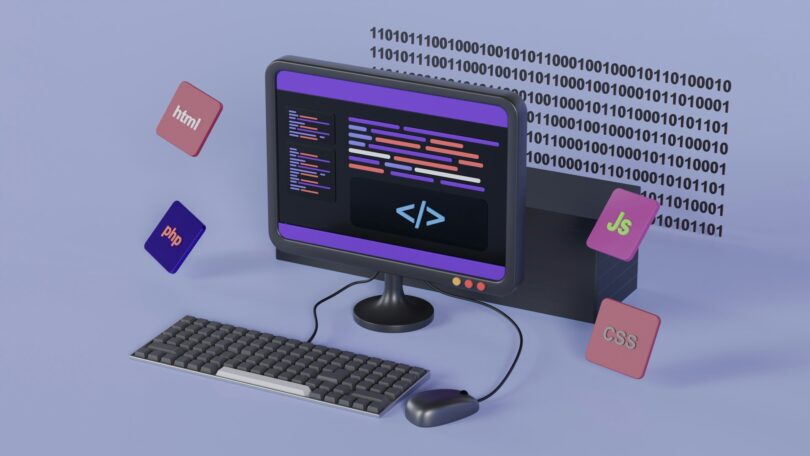How CRM Software Improves Customer Relationships
In today’s competitive business environment,CRM Software customer satisfaction and loyalty are more critical than ever. The ability to understand, engage with, and nurture relationships with customers can significantly impact a company’s bottom line. One of the most powerful tools businesses use to achieve this is Customer Relationship Management (CRM) software. CRM systems help organizations streamline communication, personalize customer experiences, and maintain long-term relationships.
This article explores how CRM software enhances customer relationships, delving into its features, benefits, real-world applications, and best practices for implementation.
What is CRM Software?
Customer Relationship Management (CRM) software is a technology solution that helps businesses manage interactions with current and potential customers. It stores customer information, tracks communication history, and automates sales, marketing, and customer service processes.
At its core, CRM software acts as a centralized hub for customer data. This enables organizations to have a 360-degree view of each customer, allowing for more personalized and efficient service.
Key Features of CRM Software
CRM platforms come with various features designed to support business-customer interactions. Here are the most common ones:
1. Contact Management
CRM stores detailed customer profiles, including contact information, purchase history, preferences, and communication logs.
2. Sales Management
Tools for tracking sales pipelines, opportunities, quotas, and revenue forecasting help sales teams close deals more effectively.
3. Marketing Automation
CRMs often include tools for email marketing, campaign management, lead generation, and segmentation.
4. Customer Service Support
Ticketing systems, live chat integration, and knowledge bases help streamline support and resolve issues faster.
5. Analytics and Reporting
CRMs offer insights through customizable reports and dashboards to track KPIs and customer behavior.
6. Mobile Access
Many CRMs are cloud-based and offer mobile apps, enabling teams to access data on the go.
Why Customer Relationships Matter
Before diving into how CRM enhances relationships, it’s important to understand the value of strong customer relationships:
-
Loyal customers are more likely to make repeat purchases.
-
Satisfied customers become brand advocates and refer others.
-
Retaining customers is more cost-effective than acquiring new ones.
-
Personalized experiences increase engagement and sales.
CRM software serves as the backbone of relationship management strategies by providing the data and tools needed to build trust and consistency with customers.
1. Centralizing Customer Data
One of the fundamental ways CRM improves customer relationships is through data centralization.
Unified Customer View
Instead of data being scattered across spreadsheets, emails, and departments, a CRM consolidates all customer information into one platform. This unified view allows all team members—sales, marketing, and support—to stay aligned.
Example:
A sales rep can see a customer’s entire purchase history and past support tickets, allowing for more informed and empathetic conversations.
Enhanced Collaboration
Departments can collaborate better when everyone has access to the same data. This reduces miscommunication and ensures customers receive consistent messaging.
2. Personalizing Customer Experiences
Modern consumers expect businesses to know their preferences and provide tailored experiences. CRM software enables this through:
Customer Segmentation
Businesses can group customers based on demographics, buying behavior, or engagement levels, allowing for targeted marketing.
Behavior Tracking
CRM tracks customer actions such as email opens, website visits, and product interactions. These insights help tailor future communications.
Personalized Communication
CRM allows companies to send personalized emails and offers, improving engagement and conversion rates.
Example:
An e-commerce business can automatically send a discount coupon to customers who haven’t made a purchase in 30 days.
3. Automating Routine Tasks
CRM automates repetitive tasks, freeing up time for teams to focus on building relationships.
Email Automation
You can set up email sequences for onboarding, product education, or abandoned cart reminders.
Task Management
CRMs can automatically assign follow-ups or set reminders for contacting leads, ensuring timely communication.
Workflow Automation
Custom workflows can trigger actions based on customer behavior. For instance, if a customer clicks a pricing page, a sales rep might be notified to reach out.
4. Improving Customer Support
Customer service is a cornerstone of relationship building. CRM enhances support in several ways:
Faster Response Times
Support teams can access detailed customer histories, enabling them to resolve issues quickly without asking repetitive questions.
Ticket Management
CRMs organize customer inquiries into tickets, assign them to appropriate reps, and track resolution times.
Self-Service Options
Many CRM platforms integrate with knowledge bases and FAQs, helping customers find answers on their own.
Consistent Follow-Up
Automation ensures that no customer inquiry slips through the cracks.
Read More: Using Time Tracking Software to Maximize Efficiency
5. Enhancing Customer Retention
Retaining customers is vital for long-term profitability. CRM contributes to higher retention through:
Loyalty Programs
CRMs can track points, rewards, and engagement levels to support loyalty initiatives.
Proactive Engagement
Using customer data, businesses can identify at-risk customers and reach out before they churn.
Renewal Reminders
For subscription-based models, CRMs send reminders about renewals or contract expirations, improving continuity.
6. Providing Actionable Insights
Data without insight is just noise. CRM platforms turn raw data into actionable intelligence.
Sales Trends
Track which products or services are performing best, and who your top customers are.
Customer Satisfaction
Integrate CRM with survey tools to gauge customer sentiment and act on feedback.
Forecasting
Predict customer needs and future revenue streams based on past behavior.
Performance Metrics
Evaluate how well your sales or support teams are engaging with customers.
7. Supporting Multichannel Engagement
Customers interact with brands across multiple channels—email, phone, social media, live chat. CRM ensures seamless engagement across all touchpoints.
Omnichannel Support
CRMs integrate with various communication platforms so you can manage all interactions in one place.
Social Media Monitoring
Track brand mentions, respond to inquiries, and manage reviews directly from your CRM.
Chat and Messaging Apps
Integrations with platforms like WhatsApp or Facebook Messenger help you stay accessible and responsive.
Real-World Use Cases
Small Business
A boutique clothing store uses CRM to send birthday discounts and track customer size preferences, increasing repeat visits.
Enterprise
A SaaS company uses CRM to automate onboarding sequences and monitor customer health scores, reducing churn.
Healthcare
A clinic manages patient appointments, sends reminders, and stores treatment histories through a healthcare-specific CRM.
Nonprofits
Nonprofits use CRM Software to manage donor databases, track contributions, and organize fundraising campaigns.
Best Practices for CRM Software Implementation
Adopting CRM software isn’t just about choosing a platform—it’s about embedding it into your business processes. Here are tips to make the most of your CRM:
Define Clear Goals
Determine what you want to achieve—better retention, higher sales, improved service—and choose features that support those goals.
Involve Your Team
Get input from different departments to ensure the CRM Software meets everyone’s needs and encourage adoption.
Clean Your Data
Before migrating, clean your data to remove duplicates and outdated contacts.
Provide Training
Train employees thoroughly to ensure they understand how to use the system effectively.
Continuously Optimize
Monitor usage, gather feedback, and adjust workflows to get maximum value.
The Future of CRM and Customer Relationships
As technology evolves, so does CRM Software. Future trends include:
AI and Machine Learning
AI-driven CRMs can predict customer behavior, score leads, and recommend next-best actions.
Voice and Chat Interfaces
Voice-activated CRMs and chatbot integrations will enable hands-free access to data and 24/7 customer service.
IoT Integration
CRM platforms will soon tap into data from connected devices to offer even more personalized service.
Deeper Personalization
With advancements in data analytics, CRMs will deliver hyper-personalized customer journeys.
Conclusion
CRM Software is more than a digital Rolodex—it’s a dynamic tool that can transform how businesses interact with their customers. From centralizing data and personalizing communication to automating tasks and offering valuable insights, CRM software enables companies to build stronger, more loyal relationships.
By investing in the right CRM and using it effectively, businesses can not only meet but exceed customer expectations, setting themselves apart in a crowded marketplace.
Whether you’re a startup looking to scale or a large enterprise optimizing customer touchpoints, CRM software is a must-have in your digital strategy arsenal. Strengthening customer relationships today ensures long-term growth and success tomorrow.







